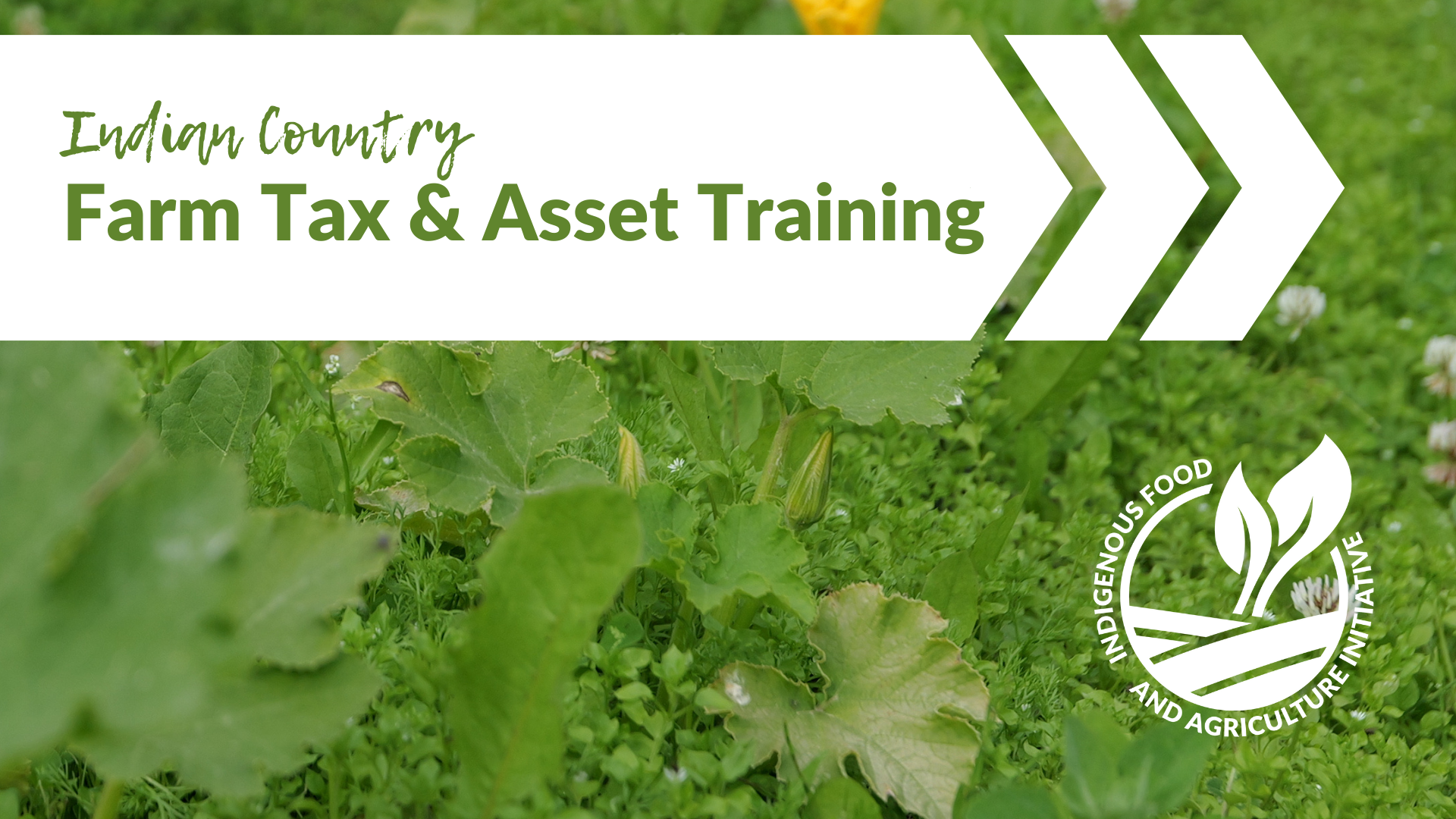Policy & Resources
Policy Briefings

IFAI Policy Brief March 11, 2025
Summary Apply before April 1 for IFAI's 2025 Native Youth in Food and Agriculture Leadership Summit. The FDPIR Tribal Leader Consultation Work Group will have its first consultation of 2025 on April 7 at the Tribal Self-Governance Conference at Gila River Tribe’s...

IFAI Policy Brief March 4, 2025
Summary Check out IFAI’s blogpost and comment template letter about USDA’s Child Nutrition Programs Tribal Pilot Projects. Tribes can submit comments through March 24. Nominations for the Western and Central Pacific Fisheries Commission Permanent Advisory Committee ...

IFAI Policy Brief February 25, 2025
Summary Attend IFAI’s informational webinar on Feb. 26 at 1 p.m. central. We are highlighting how the new administration’s executive orders may impact Tribal food and agriculture. Use the link here to sign up. Check out IFAI’s updated blogpost and comment template...
Educational Resources
No Results Found
The page you requested could not be found. Try refining your search, or use the navigation above to locate the post.
Census Information
ANNUAL MARKET VALUE of ai/An Ag products*
Number of AI/AN Farms in 2022
Number of AI/AN PRODUCERS in 2022
Trainings/Webinars
The materials are based upon work supported by the U.S. Department of Agriculture, under agreement number FSA22CPT0012189.
Click the button below to access educational materials regarding tax and asset management.
EATS Academy
The Empowering Agriculture through Tribal Sovereignty (EATS) Academy is an ecosystem of trainings and resources developed by the Indigenous Food and Agriculture Initiative to support Tribal governments and producers develop robust food systems throughout Indian Country.
As needs for EATS Academy resources change and evolve for Tribal governments and producers, the academy will reflect updated information as it becomes available. Sign up to receive communications on updated resources and news related to the Indigenous food and agriculture.

Support for the EATS Academy has been generously provided by the Walmart Foundation.
This centralized resource ecosystem is intended to bridge gaps in information available to Tribal governments and producers. This is in no way complete, but it is a foundation for Tribal stakeholders to start their work in Tribal food sovereignty efforts.
Your feedback is important – we want to hear from you! What educational resources are missing? Send an email to tribalag@uark.edu.
Start below by sorting the information based on which category best fits your role, interests, goals, or areas of expertise.
Model Tribal Food and Ag Code
The Model Tribal Food and Agriculture Code Project serves as a resource for Tribal governments, providing a comprehensive set of model laws for review, adoption, and implementation. The model laws contained in the code were designed by IFAI and contributing attorneys to facilitate agricultural production, food systems development, and health outcomes improvement in Indian Country.
 Putting Tribal Sovereignty in Food Sovereignty
Putting Tribal Sovereignty in Food Sovereignty























